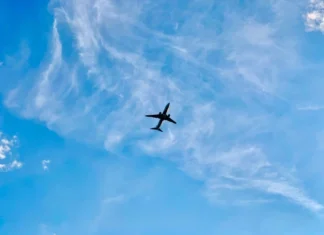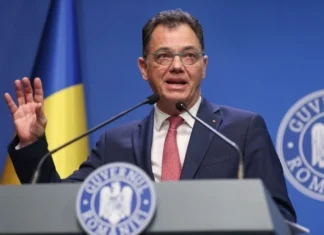Political Tensions: Adrian Câciu Voices Concerns Over PNL Leadership
In the realm of Romanian politics, tensions have been palpable, particularly following the recent leadership changes within the National Liberal Party (PNL). Adrian Câciu, a prominent figure from the Social Democratic Party (PSD), has openly questioned the motivations of PNL leader Ilie Bolojan. Câciu’s comments shed light on the shifting power dynamics within the political landscape, particularly with respect to the PNL’s new direction.
Câciu specifically challenged the notion that Bolojan, who recently took over leadership from Nicolae Ciucă, has the best interests of the party in mind, especially regarding the recent elections. He posed a provocative question: "Do you really think that Mr. Bolojan, after he took the PNL from Ciucă, ever wanted Crin Antonescu to reach the second round?" This inquiry suggests skepticism about Bolojan’s intentions, hinting at a deeper rivalry within the party and the governance framework in Romania.
The crux of Câciu’s argument revolves around the PNL’s alignment with the former PDL faction, which has historically been a point of contention in Romanian politics. He expressed a firm stance: "As long as Bolojan and the PDL group within the PNL hold power in the upcoming government, I will remain in opposition." This statement underscores a commitment to critiquing the policies and actions of the current administration, potentially galvanizing the PSD base and signaling a readiness to challenge the PNL’s governance approach.
Bolojan’s ascension to the leadership of PNL has been interpreted by some as a shift back to a more traditional, conservative approach, reminiscent of the party’s earlier days when it was more closely aligned with the PDL. This transition raises questions about how the PNL will navigate the complexities of contemporary political issues while engaging with both its legacy and the evolving expectations of Romanian citizens.
Câciu’s stance not only highlights internal party dynamics but also reflects broader concerns about effective governance and representation within Romania. The backdrop of political maneuvering emphasizes the importance of transparency and accountability from leaders. As public trust in political institutions wanes, voices like Câciu’s are crucial in advocating for a critical discourse on leadership responsibility and party integrity.
The upcoming months will be pivotal as the political landscape continues to evolve. As the PSD and other opposition parties prepare strategies to counter the PNL’s proposed initiatives, the rhetoric surrounding leadership accountability will likely intensify. Câciu’s remarks serve as a clarion call for vigilance among constituents who are increasingly interested in the implications of political shifts on their daily lives.
In conclusion, Adrian Câciu’s comments reflect the ongoing dialogue and tensions within Romanian politics, particularly regarding the governance strategies of the PNL under Bolojan’s leadership. This saga not only underscores individual political careers but also illustrates broader themes of public trust and governmental integrity that are critical to the democratic process in Romania. As political factions gear up for the challenges ahead, it’s evident that opposition voices will play an essential role in shaping the future of governance in the country.






